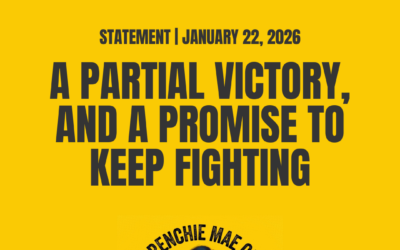It is extremely unfortunate, though not surprising, that the Department of Justice has approved the filing of a cyber libel case against Rappler and its CEO Maria Ressa and former researcher Reynaldo Santos Jr.
While we are confident that Rappler can competently defend itself from the charge, we are concerned about the implications of the DOJ decision, which, in effect, allows the filing of a case for an alleged offense committed well before the law that criminalized that particular offense.
In this case, the allegedly “cyber libelous” story was posted May 29, 2012, months before the Cybercrime Law, which defines and penalizes the offense of cyber libel, came into effect on October 3 that same year.
But to circumvent this, the DOJ resolution cites the “multiple publication rule” because the timestamp on the offending story shows it was updated February 19, 2014, thus making it a “republication” that makes it a “distinct offense” deserving for prosecution, notwithstanding that, as Rappler says its internal content management system shows, the modification was to correct a typographical error.
Earlier, the National Bureau of Investigation, which originally dismissed but then soon after revived the complaint, raised the theory of “continuous publication” that, because the story remains online and may have been read by the complainant only after the Cybercrime Law was enacted, then it is covered by the provisions on cyber libel.
This is an extremely dangerous proposition since it essentially means anyone can be made liable for anything and everything they posted even way before the Cybercrime Law so long as it remains on the Web and is accessible.
These legal acrobatics plus the timing of the complaint’s filing make it hard to shake off the suspicion that the law has deliberately been weaponized against Rappler as part of this administration’s efforts to take it out because of the chief executive’s extreme dislike for the outfit.
We hope the courts rise to the occasion and stop this legal anomaly from becoming legal precedent.
For the longest time, the NUJP has sought the revision of the libel law that will discard the criminal aspect.
But instead, with the cybercrime law in effect, the penalty for e-libel has increased a notch higher, or from 6 months and one day to a maximum of 4 years and 2 months under the Revised Penal Code, to 6 years and one day up to 12 years.
E-libel is an institutionalized threat to free expression specially in the internet age where the worldwide web has democratized access to endless information that empower ordinary citizens.
We, and we are sure the whole community of independent Filipino journalists, will be keeping close watch on this case, whose outcome is sure to have great implications on freedom of the press and of expression in this country.
National Directorate
Hotline: +639175155991




